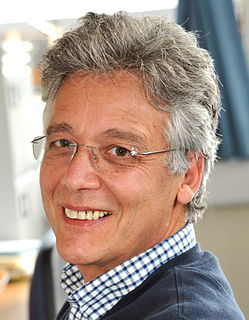A Quote by David D. Burns
I have been amazed by the interest in cognitive behavioral therapy that has developed since 'Feeling Good' was first published in 1980. At that time, very few people had heard of cognitive therapy.
Related Quotes
The cognitive therapy that takes place in the film Antichrist is a form of therapy that I have used for some time, and it has to do with confronting your fears. I would say that especially the part of the film that has to do with therapy is humoristic because people who know about this form of therapy would know that the character is more than a fool.
The government ought to help out, because the average citizen can't go out and be doing reviews of the scientific literature. And focus on the processes that have low side effects and good long-term outcomes. Right now you're going to find those in the psychosocial area, in the therapy area, in the empirically supported treatments such as ACT or cognitive behavior therapy, behavior therapy. And go there first rather than going to the pill bottle as if it's going to be the end of your journey. Very often it's only going to help, and even only to a minor degree, and more is going to be needed.
What I argue is that talk of knowledge plays an important role in theories within cognitive ethology. The idea is this. First, one sees cognitive ethologists arguing that we need to attribute propositional attitudes to some animals in order to explain the sophistication of their cognitive achievements.
The Freudian tradition will never completely die because it has a few good points. For example, people have motives and thoughts of which they are unaware. Most of cognitive therapy has now adopted a similar idea. On the other hand, the relationship part of psychoanalysis - where you must have a deep, emotional relationship with the client - will, I think, get kicked in the teeth one of these days.




































